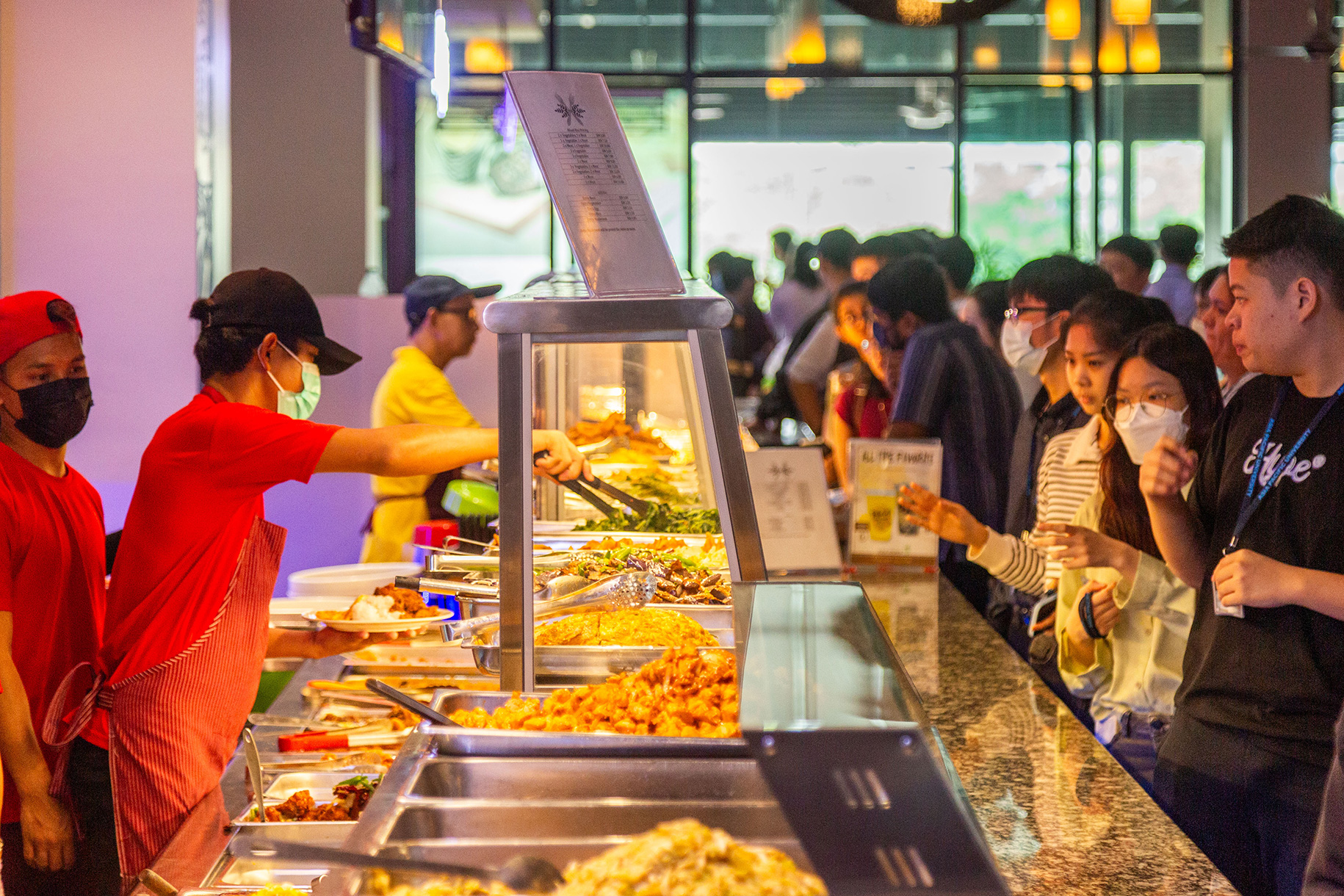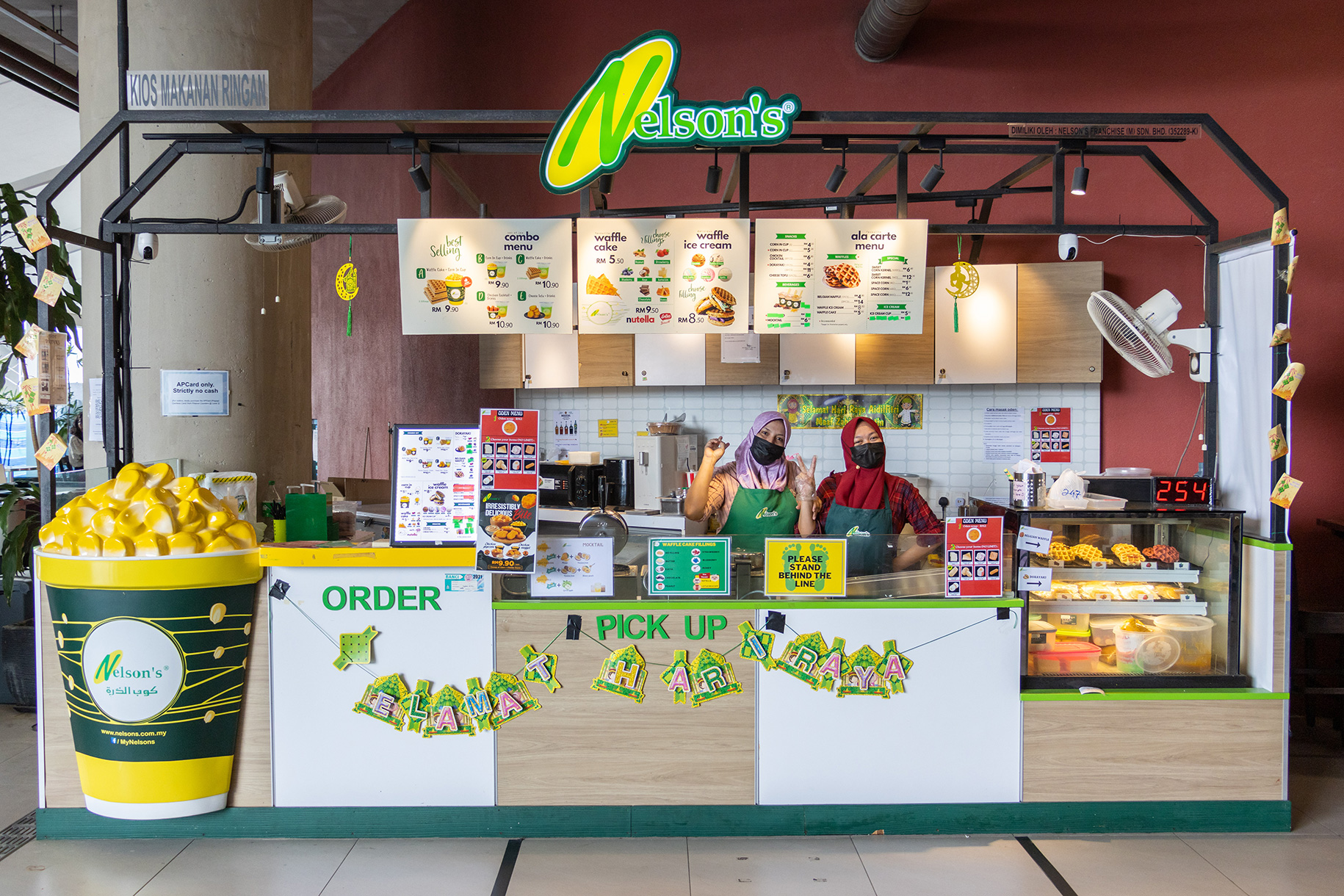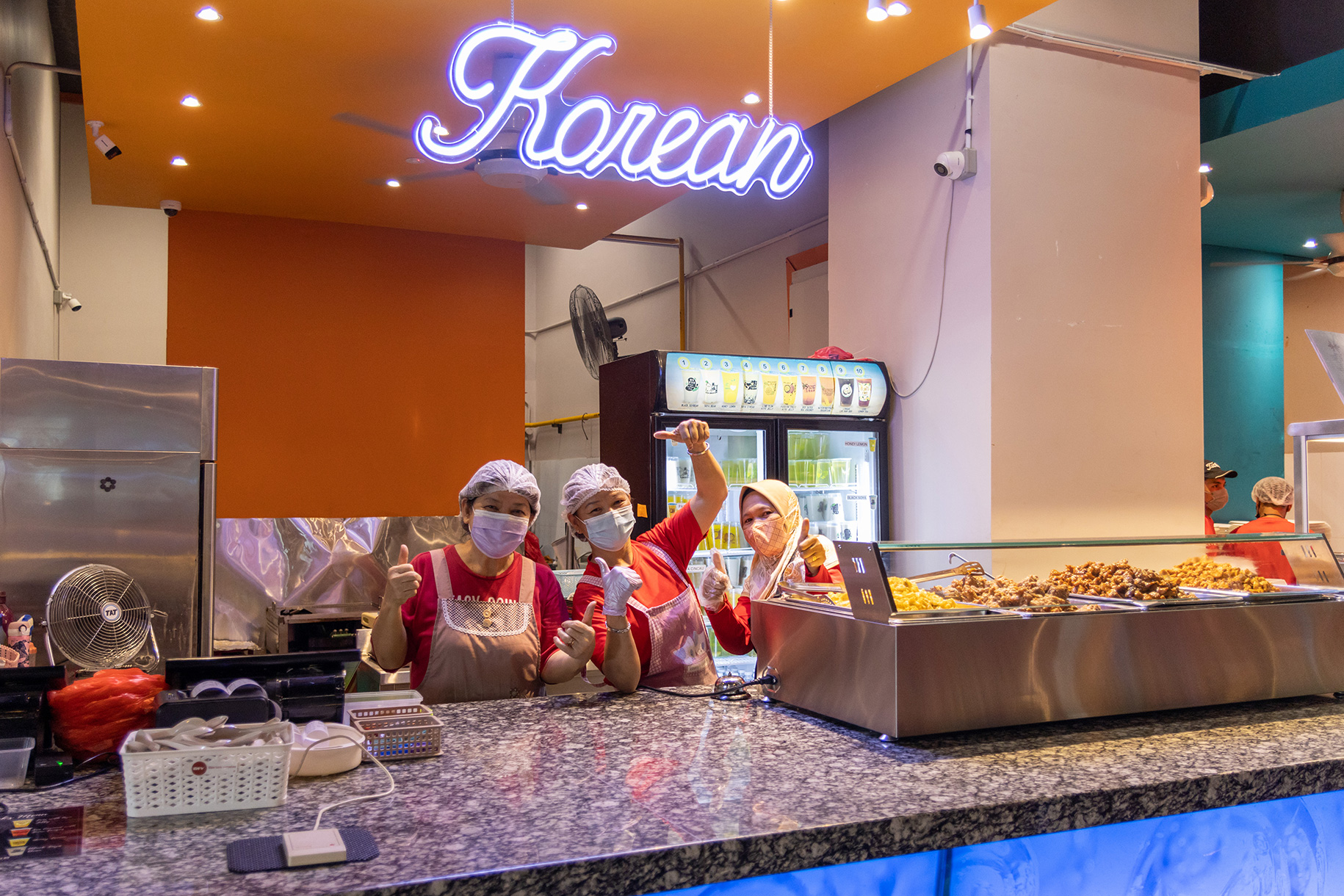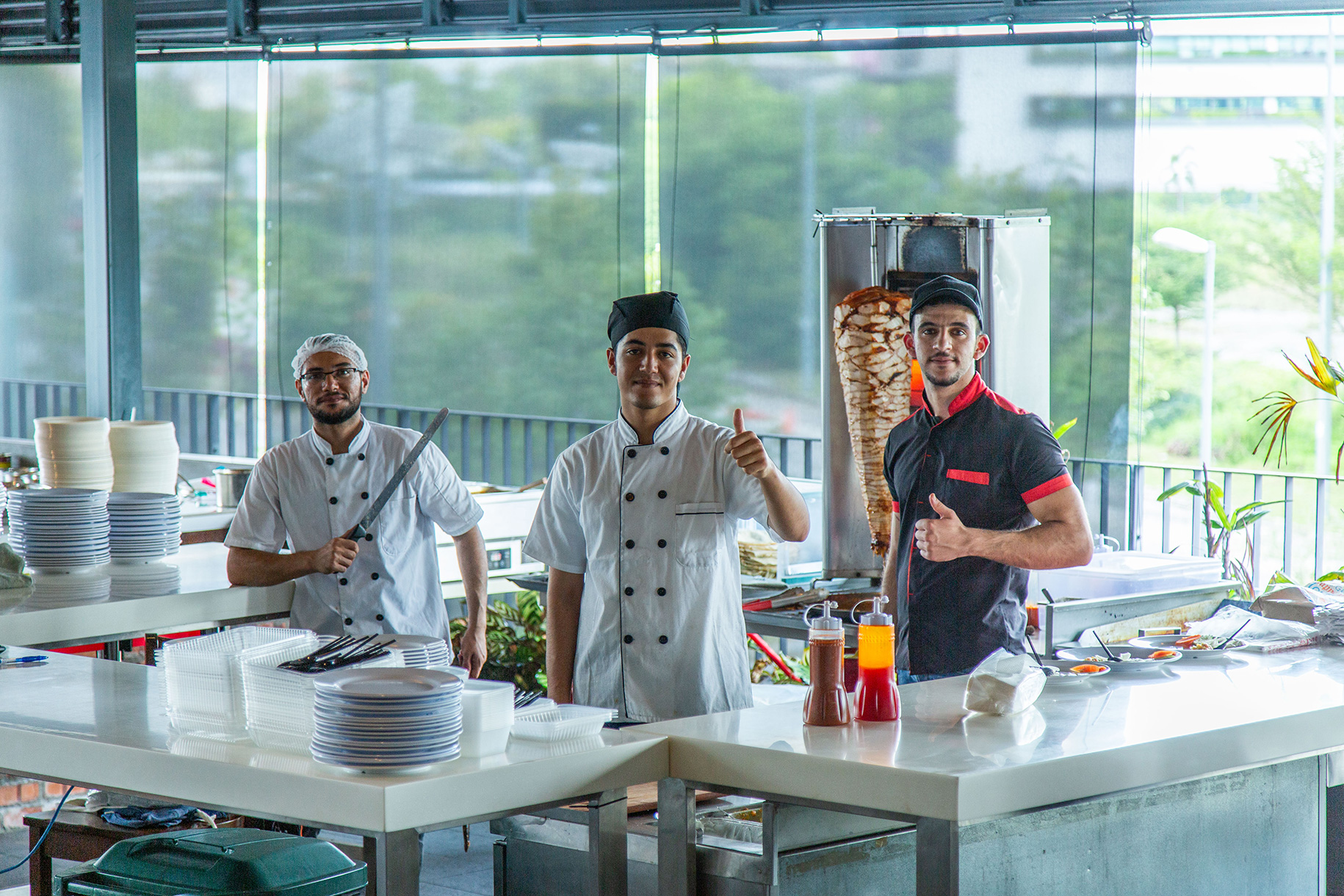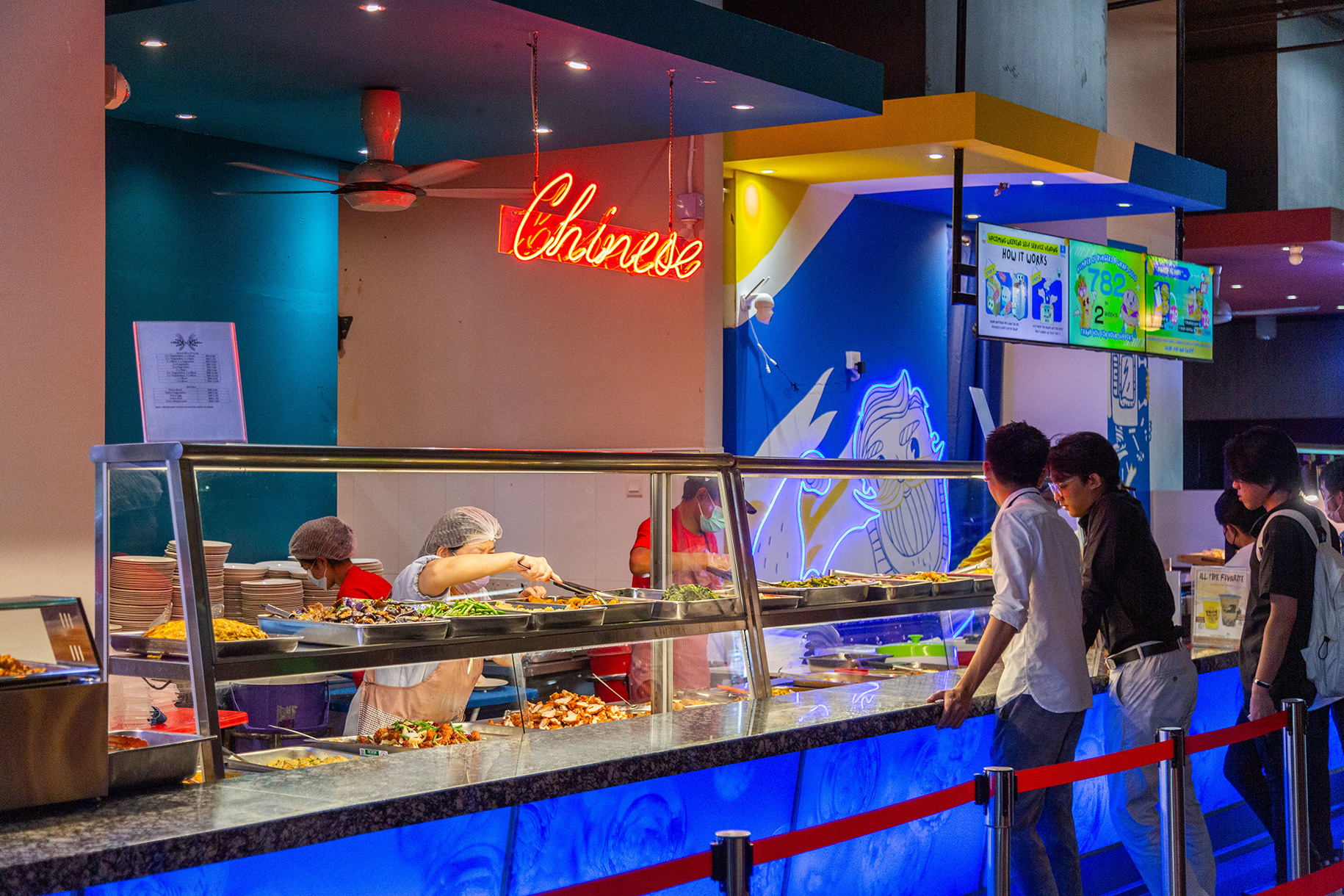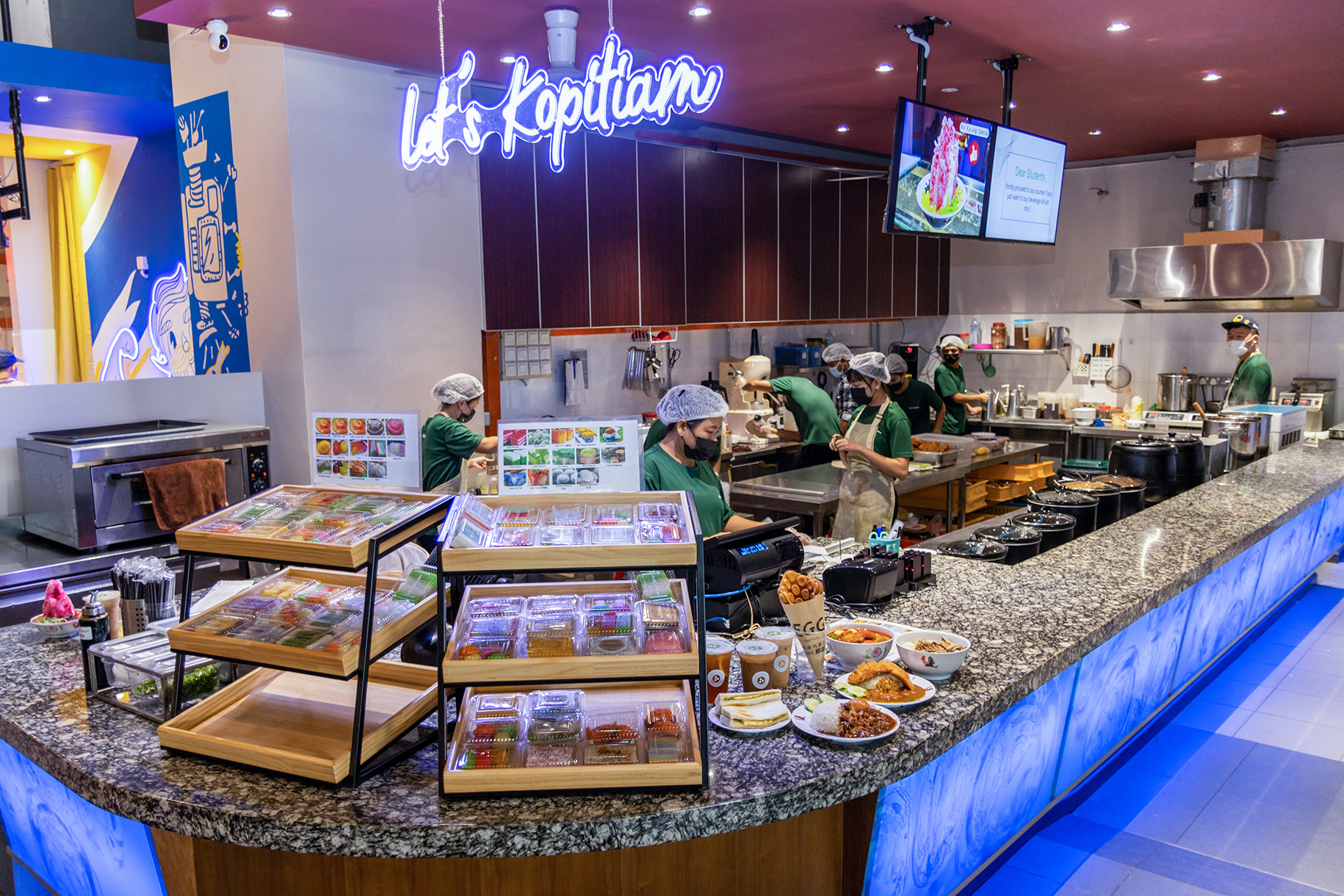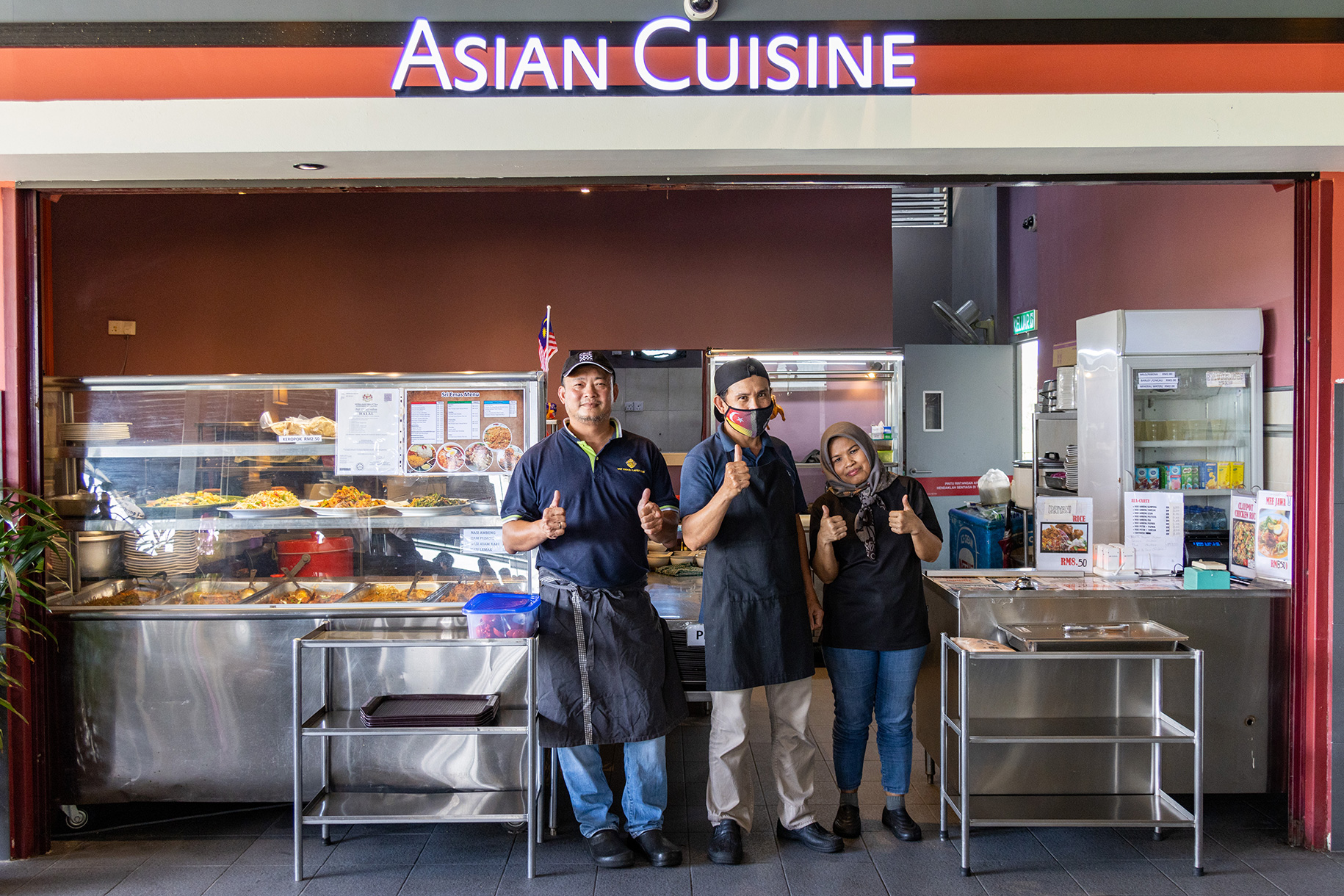You are here
Cafeteria

Our university understands the importance of a healthy and affordable meal. That's why we offer a vibrant and enjoyable cafeteria experience, ensuring you have convenient access to delicious food throughout your day.
Campus Cafeterias and Food Outlets
Asia Pacific University boasts multiple on-campus cafeterias and food outlets, strategically located throughout the campus to cater to the diverse needs of its multicultural student body. Each eatery offers a unique selection of dishes, ensuring that students have access to a wide range of healthy food choices.
Healthy Food Offerings
The university's food service providers have taken great care to curate menus that emphasize the importance of maintaining a healthy and balanced diet. Some of the key aspects of the healthy food variety at APU include:
- Balanced Meals: The campus cafeterias serve well-balanced meals that consist of a variety of food groups, including proteins, whole grains, vegetables, and fruits. This approach ensures that students have access to a wide range of nutrients essential for their overall health and well-being.
- Vegetarian and Vegan Options: APU recognizes the importance of catering to students with various dietary preferences. As such, the university's food outlets offer a substantial selection of vegetarian and vegan dishes, providing ample choices for those who follow plant-based diets.
- Fresh Salads and Fruits: A wide array of fresh salads and fruits are available, encouraging students to opt for nutritious snacks and sides. This helps in promoting healthy eating habits and provides essential vitamins and minerals.
- Healthy Beverages: APU promotes the consumption of healthy beverages such as freshly squeezed juices, smoothies, herbal teas, and low-sugar options. These beverages are readily available in the cafeterias, ensuring students can make better choices when it comes to hydration.
- Whole Grains and Low-Fat Options: Whole grains and low-fat food items essentially for sandwiches are prominently featured in the menus, as they contribute to a healthier diet by providing essential nutrients and reducing unhealthy fat intake.
- Special Dietary Considerations: The food outlets at APU are mindful of students with specific dietary requirements, such as gluten-free, lactose intolerance, and allergies. These considerations are taken into account when designing the menus (only catered for certain students with special dietary requirements), making it more inclusive and accessible for all.

Cleanliness and Quality
We understand the importance of a clean and healthy dining environment. Our cafeteria adheres to hygiene standards and undergoes frequent quality inspections to ensure you can feel confident and comfortable enjoying your meals.
| |
Affordable and Convenient
We recognise the importance of budget-friendly options for our students. Our cafeteria serves a variety of enjoyable cuisine at affordable prices, making it a convenient option for every meal.
| |
Diversity on Your Plate
Diversity extends beyond our international community at APU. We offer a diverse selection of halal cuisines including Malay, Chinese, Indian, Arabic, Asian, and Western options, ensuring there's something to satisfy every craving.
| |
More Than Just a Meal
Our cafeteria is more than just a place to grab a bite. It's a popular hangout spot where you can connect with friends during break, catch up on campus news, or simply just relax before your next classes.
| | |
Asia Pacific University demonstrates a strong commitment to promoting healthy eating habits and overall well-being among its campus community. By offering a diverse array of nutritious food options, the university empowers students and staff to make healthier choices, fostering a culture of well-being and vitality on campus.
The university's approach to healthy food variety, combined with its efforts to educate and raise awareness about nutrition, sets an exemplary standard for other educational institutions to follow. APU continues to serve as a model for promoting healthy living within an academic setting.




